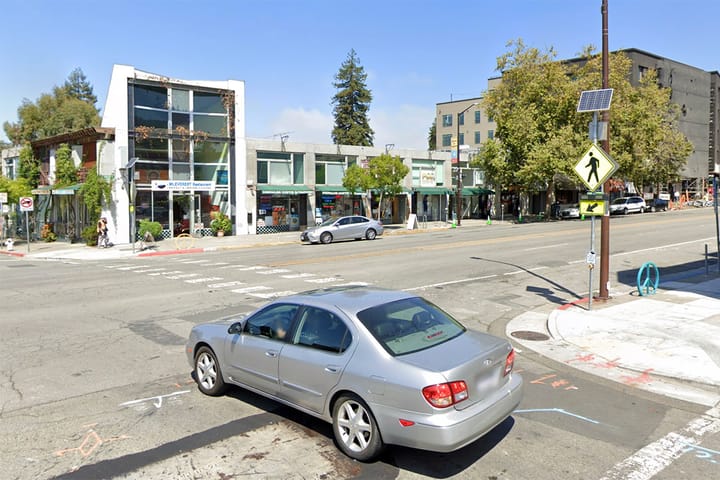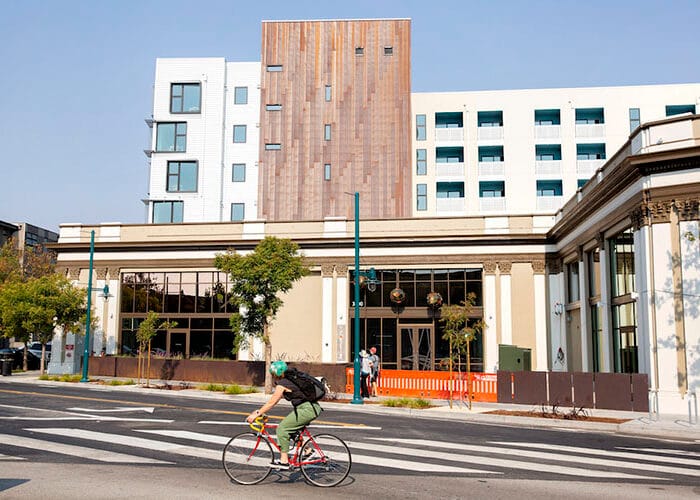Berkeley sex crime attack near Cal: Suspect held to answer
Police say Wilmer Guerra Peña jumped out of the bushes and attacked an exchange student, carrying her toward the open trunk of his car.

A man alleged to have attacked a female summer exchange student near UC Berkeley in June has been held to answer on felony sex crime charges, court records show.
Berkeley police say Wilmer Guerra Peña, 28, got in line behind the young woman at Kip's Bar near campus around midnight and stayed in the bar until she left for home on a rented scooter at about 2 a.m. June 21.
According to police, Guerra Peña tailed the 21-year-old woman through Southside Berkeley in his car and then hid in the bushes until she rode past him on the electric scooter.
Then, police say, he jumped out and faked a collision before attacking her, picking her up by the groin and carrying her toward the open trunk of his car, which he'd parked behind a church nearby.
Guerra Peña only gave up, according to court papers, because the woman screamed so loudly for help and fought so hard against him that he ultimately told her, "You’re not worth it," before dropping her and running off into the shadows.
In mid-July, the young woman and two Berkeley police officers testified during a day-long preliminary hearing after which Alameda County Superior Court Judge Mark McCannon held Guerra Peña to answer, meaning he is now set to stand trial.
Though the hearing was brief, it was marked by a number of procedural and legal issues for which Judge McCannon repeatedly admonished prosecutor Brian Varghese.
Varghese was hired as a deputy district attorney in February as part of DA Pamela Price's new administration and came over with Otis Bruce Jr. from Marin County.
Varghese is now part of Price's recently announced retail theft prosecution team.
Read more about sex crimes in Berkeley.
Wilmer Guerra Peña is charged with kidnapping to commit a sex crime and assault to commit a sex crime, which are both felonies.
Police said they caught him several days after the attack when he parked in a red zone near Cal just five blocks from the kidnapping site. It was a Saturday around midnight, when many students are out in the neighborhood.
A patrol officer recognized Guerra Peña's distinctive car and distinctive physical description, according to court testimony.
During his preliminary hearing, which took place July 12, Guerra Peña was assisted by a Spanish language interpreter.
The Berkeley Scanner did not attend the hearing but reviewed a transcript of it this week, along with other court records.

"Something very bad was going to happen to me"
During the hearing, the young woman who was attacked told the court she'd been on her way home when she had to swerve to avoid a man who appeared in front of her on the sidewalk.
She said the man, who was wearing a bright green camouflage balaclava over his head, "went to the ground and pretended to be hurt."
When she turned to pick up her scooter, the man stood up and lifted her up from behind, putting one hand between her legs, she testified.
He carried her about 15 feet as she screamed at him to stop, she said.
She twisted her body and flailed her arms in an effort to fight him off, she said.
"My hands were flying everywhere," she said.
The young woman managed to get out of the man's grasp and ran in the opposite direction, crying, until she came across two good Samaritans who comforted her and walked her home.
(The good Samaritans never spoke to police. Authorities have said they would like to talk to them.)
The attack happened at College Avenue and Haste Street near University Lutheran Chapel.
Read more court coverage on The Scanner.
The young woman said the man did not demand money or grab her bag, which made her think he had other plans, that "something very bad was going to happen to me," she said. "I didn’t know what exactly, but I knew … I had to get away."
She said she believed the man's intent was sexual.
"Obviously I couldn’t predict what he was going to do, but I thought it was going to be something very bad," she told the court.
When she was questioned by defense attorney Hien Nguyen, the woman said she did not recall telling police that the man had told her, "Shut up, b-tch. Stop f-cking screaming."
She said she could not identify her attacker because of his balaclava and because everything happened so fast.
Brian Varghese, the prosecutor, asked the woman what she was wearing when she was attacked.
She said she had on a pink jumpsuit and denim jacket.
"The pink jumpsuit, was that skin-fitting or could you describe — ?" Varghese began to ask.
Judge McCannon interrupted Varghese before he could complete the question.
"It doesn’t matter if it was skin-fitting or not," the judge said. "She told you what she was wearing. The fact that it was tight or loose is irrelevant."
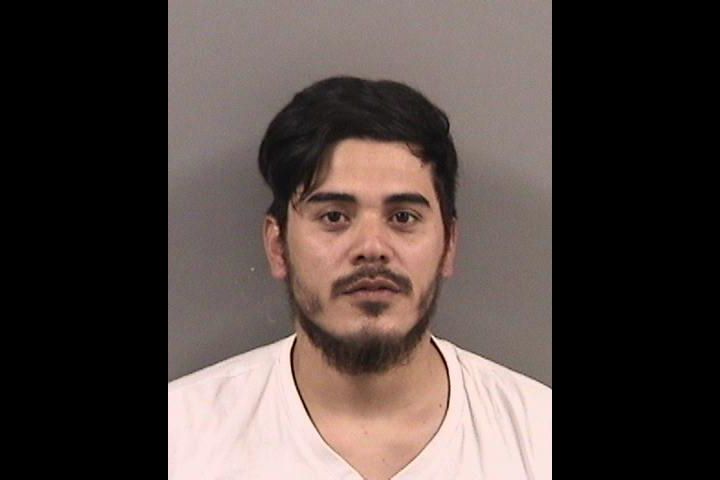
Judge: Prosecution was "all over the place"
During the hearing, Judge McCannon repeatedly broke in as Varghese questioned witnesses, taking over for extended periods to hone in on key facts.
He also helped establish the foundation for evidence, such as the surveillance footage police said helped make the case, how Guerra Peña came to be arrested and how investigators secured the search warrant for the suspect's home.
"How this all came in is the issue," McCannon said of the evidence before making his ruling. "It was all over the place. So the court being the finder of fact felt it necessary to ask clarifying questions to get to the point as to whether or not there was enough evidence to hold him to answer."
When Varghese asked the witness where she lived, for example, which streets she used to get home, and to be more specific about where the stranger had grabbed her beyond "between my legs," McCannon pointedly told him to move on.
Varghese at times struggled to take the hint.
"Was it closer to your knee?" he asked the woman. "Or to your pelvis?"
"How close to your pelvis was this between your legs?" he asked.
"It doesn’t matter," McCannon broke in again. "This person touched her between her legs. Let’s go. Next question."
McCannon also said he was concerned because the woman had not been accompanied by a victim/witness advocate during her testimony.
"Throughout my whole career as an attorney and as a judge, on cases that involve even a hint of some type of sexual assault, there is a victim/witness advocate present … to support the witness," he said from the bench.
"So I stopped the proceedings and I told the district attorney to get a victim/witness advocate," he said, for the record.
When that advocate arrived, McCannon told her he planned to follow up with her supervisor "so that … we can avoid this situation" in the future, he said.
McCannon also asked Varghese to explain why no advocate had been present in the first place.
Varghese told the judge he believed the young woman had rejected his offer to have an advocate present.
But he also said "it was an error" that no advocate had been assigned to the case.
"I hope now you realize that this can be traumatic for a witness," McCannon told him, "and it can cause both attorneys some issues."
Extensive surveillance footage helped crack the case
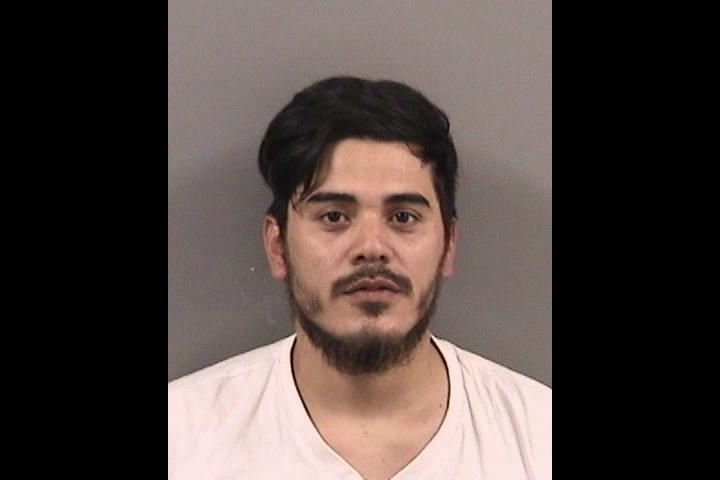
When it was his turn on the stand, Berkeley Police sex crimes detective Derek Radey described how officers tracked down surveillance footage from the neighborhood to reconstruct the attacker's movements and identify him.
One video showed Guerra Peña get in line with the victim at Kip's Bar, according to court papers. Hours passed and then he left the bar three minutes after she did, police wrote.
One of the videos showed the assailant park behind a church right before the kidnapping and then hide in the bushes, Radey said.
It also showed the attack itself, as Guerra Peña "jumps out and manufactures a collision," police wrote in court documents.
Other footage showed the suspect running east on Haste Street toward Piedmont Avenue less than a minute after the attack in what Radey described as "distinctive clothing": a black jacket, skinny jeans and "bright white" sneakers.
Footage also showed his "distinctive" shoes, which had a metal tag at the bottom of his laces, as well as his "distinctive facial hair," which was "patchy" and "does not fully fill in."
"His hair was very distinctive in that he had a comb-over," Radey testified. "It was long on top and a portion of it fell to the right side of his face. In the video you can see him use his hand to brush his hair out of his face. So based on that video, we were able to identify a suspect in this case."
The assailant also had a notable gait that matched Guerra Peña, police said, "in that his toes flip outward a little bit when he walks, and he steps almost heel to toe, similar to walking on a tightrope, and is somewhat bowlegged."
Radey said investigators identified Guerra Peña's vehicle via surveillance footage as an early 2000s model green or blue Nissan Sentra with body damage, black steel rims and one brake light that was dimmer than the other one.
Radey also said police found a green balaclava inside Wilmer Guerra Peña's trailer in Oakland while serving a search warrant there in late June.
Guerra Peña lied to police about his address during his arrest in Berkeley in June, BPD wrote, but he had given his address to Oakland cops when they stopped him in May, which led Berkeley sex crimes investigators to his trailer.
Nguyen, the defense attorney, said in brief closing arguments that he did not believe there was sufficient evidence to hold his client to answer on the charged offenses, adding that this was "not to say that other offenses have not been shown by probable cause."
Varghese said that, "based on the evidence the Court has heard today, I believe that the primary issue may relate to the defendant’s identification."
"It doesn’t," Judge McCannon replied curtly.
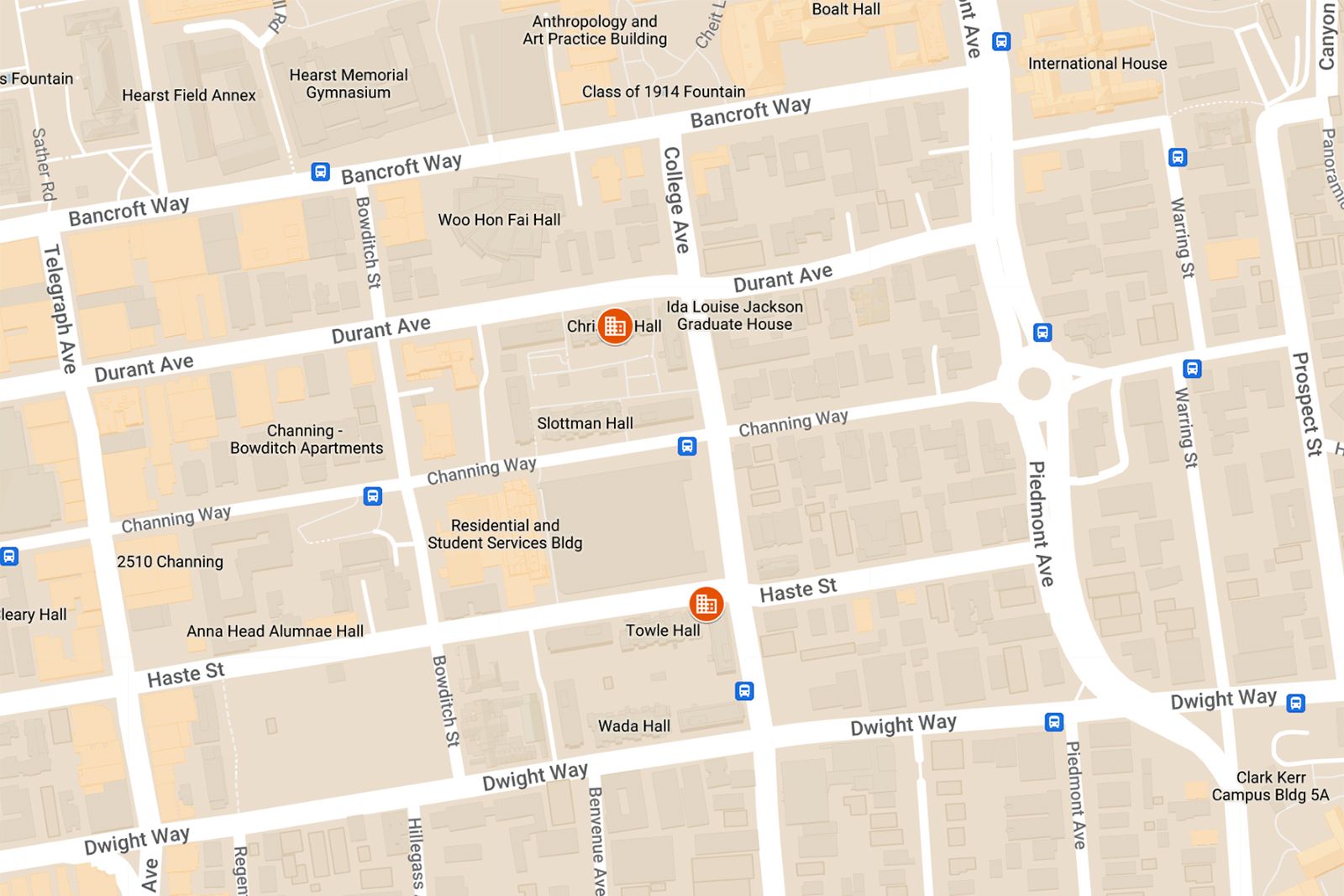
The judge went on to say that witness testimony, photographic evidence and clothing found at Guerra Peña's home had all substantiated his identification as the suspect in the case.
"They tracked him down through the surveillance photo, by the car. So there is more than enough in terms of ID. ID is not an issue here," McCannon said. "This is a PX. The burden is very low. I’m going to remind you of that again, it’s very low."
During a preliminary hearing, or PX, the judge only has to determine whether it's reasonable to believe that a crime occurred and that the defendant committed it.
McCannon continued: "The victim stated he didn’t look like he was trying to rob her because he didn’t ask for her belongings; he grabbed her between the legs and moved her. That’s enough for a preliminary hearing."
In addition to felony kidnapping and assault to commit a sex crime, the DA's office charged Guerra Peña with several aggravating factors, which can lead to a longer sentence: that the victim was vulnerable, that the conduct was violent, that the crime took planning and that it involved violence or callousness.
Guerra Peña is not slated to return to court until Dec. 5 when he is scheduled for a procedural hearing.
He has been in custody since his arrest in June and is being held on $500,000 bail, according to court records.
Editor's note: The Berkeley Scanner makes every effort to follow serious cases through the criminal justice system until they are complete. We aim to attend court hearings in person as often as we can. In rare instances when that is not possible, generally because of conflicting court hearings, we review transcripts after the fact. That sometimes results in delayed reporting, as it did in this case. The Scanner continues to be the only news outlet following the Guerra Peña case.




